April 22 stands as one of history’s most eventful days, witnessing the rise and fall of empires, groundbreaking discoveries, and moments that shaped our modern world across centuries of human achievement.

Politics and Government Events on April 22
1948 – Arab-Israeli War: Haifa Captured by Jewish Forces
Jewish forces launched a decisive assault on the strategic port city of Haifa during the Arab-Israeli War. The capture of this vital Mediterranean harbor marked a turning point in the conflict.
The victory secured crucial shipping lanes and supply routes for Jewish forces. Haifa’s fall demonstrated the growing military effectiveness of Jewish paramilitaries in the region.
1951 – Korean War: Battle of Kapyong Begins
Chinese People’s Volunteer Army forces initiated massive assaults against Commonwealth positions at Kapyong. The Royal Australian Regiment and Princess Patricia’s Canadian Light Infantry faced overwhelming enemy numbers.
This fierce engagement would prove crucial in halting Chinese advance toward Seoul. The battle showcased the determination of UN forces during one of the war’s most critical phases.
1954 – Army-McCarthy Hearings Begin Live Television Coverage
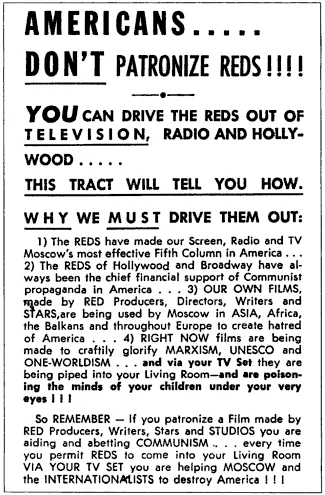
The Army-McCarthy hearings commenced with unprecedented live television coverage reaching millions of American homes. Senator Joseph McCarthy’s aggressive tactics were broadcast nationwide for the first time.
This landmark moment in television journalism marked the beginning of McCarthy’s public downfall. The hearings demonstrated television’s power to shape public opinion and political discourse.
2005 – Japanese Prime Minister Apologizes for War Record
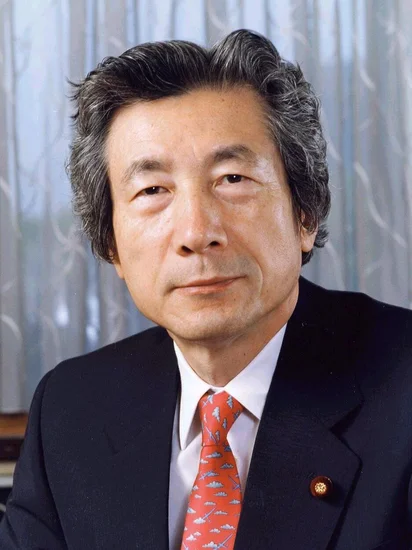
Prime Minister Junichiro Koizumi issued a formal apology for Japan’s wartime actions across Asia. His statement addressed decades of diplomatic tensions with neighboring countries.
The apology represented a significant diplomatic gesture toward healing regional relationships. Koizumi’s words carried particular weight given ongoing disputes over historical interpretations.
2016 – Paris Agreement Signed to Combat Global Warming
World leaders gathered to sign the historic Paris Agreement on climate change. This landmark accord established international frameworks for reducing greenhouse gas emissions.
The agreement marked humanity’s most ambitious attempt to address climate change collectively. Nearly 200 countries committed to limiting global temperature increases through coordinated action.
Military and Naval History on April 22
1915 – Chlorine Gas Deployed in Second Battle of Ypres
German forces released chlorine gas as a chemical weapon during the Second Battle of Ypres. This marked a horrific escalation in World War I’s devastating technological warfare.
The attack demonstrated the war’s increasingly destructive nature and disregard for conventional combat rules. Chemical weapons would become a defining terror of the Great War.
1930 – London Naval Treaty Signed by Major Powers
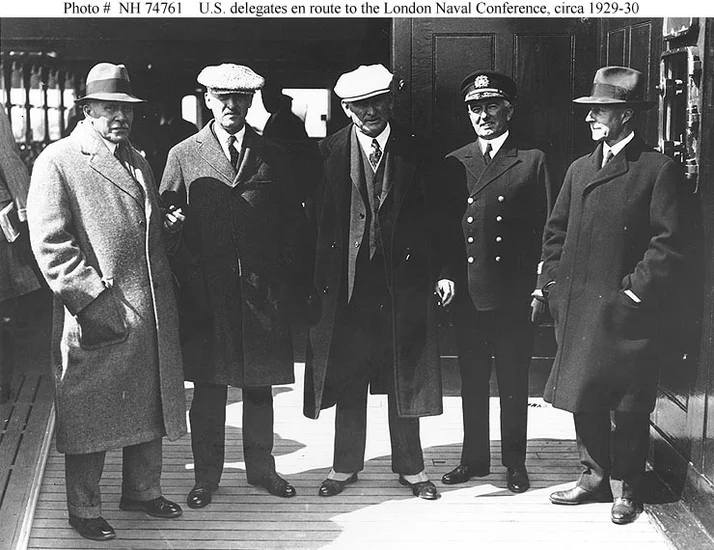
The United Kingdom, Japan, and United States signed the London Naval Treaty regulating naval warfare. The agreement established strict limitations on submarine operations and shipbuilding programs.
This diplomatic accord aimed to prevent another devastating naval arms race. The treaty reflected growing international desire for military restraint following World War I’s carnage.
1944 – First Combat Helicopter Operations Launched
The 1st Air Commando Group conducted the first combat helicopter operations using Sikorsky R-4 helicopters. These pioneering missions involved combat search and rescue in the China Burma India Theater.
The operations revolutionized military aviation and battlefield medicine. Helicopters proved their invaluable worth in reaching previously inaccessible combat zones.
1944 – Allied Forces Land in Hollandia, New Guinea
Operation Persecution commenced as Allied forces launched amphibious assaults in the Hollandia area of New Guinea. The massive operation aimed to bypass Japanese strongholds and establish forward bases.
This strategic maneuver accelerated the Allied advance toward the Philippines. The successful landings demonstrated growing American amphibious warfare capabilities in the Pacific.
1945 – Jasenovac Concentration Camp Prisoners Revolt
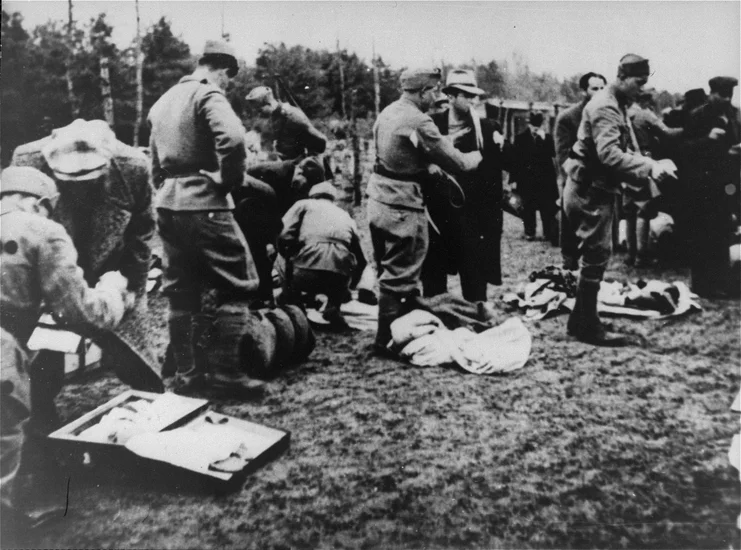
Prisoners at the notorious Jasenovac concentration camp staged a desperate revolt against their captors. Five hundred twenty prisoners died in the uprising while approximately eighty managed to escape.
The revolt represented one of the largest prisoner uprisings in Nazi-occupied Europe. This act of defiance occurred as Allied forces closed in on remaining Axis positions.
1945 – Red Army Liberates Sachsenhausen Concentration Camp
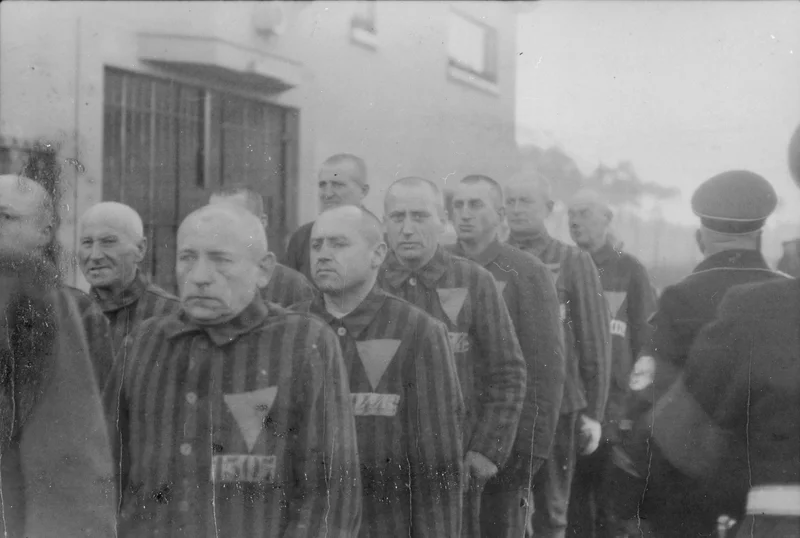
Soviet and Polish forces liberated the Sachsenhausen concentration camp near Berlin. Thousands of surviving prisoners gained freedom after years of Nazi persecution and brutality.
The liberation revealed the full horror of the Nazi concentration camp system. Soviet forces documented extensive evidence of war crimes and crimes against humanity.
Science and Discovery Milestones on April 22
1977 – Optical Fiber Carries First Live Telephone Traffic
Engineers successfully transmitted live telephone conversations using optical fiber technology for the first time. This breakthrough demonstrated the revolutionary potential of fiber optic communications.
The achievement marked the beginning of the modern telecommunications revolution. Optical fiber would eventually replace traditional copper wiring in communications networks worldwide.
1969 – First Solo Non-Stop Global Circumnavigation Completed

British yachtsman Sir Robin Knox-Johnston completed the first solo non-stop circumnavigation of the world. His victory in the Sunday Times Golden Globe Race established new standards for maritime achievement.
The 312-day journey pushed the boundaries of human endurance and navigation skills. Knox-Johnston’s triumph inspired generations of solo sailors and ocean adventurers.
1970 – First Earth Day Celebrated Worldwide

The inaugural Earth Day brought environmental awareness to unprecedented global prominence. Millions of people participated in demonstrations, cleanups, and educational events across the planet.
This grassroots movement catalyzed the modern environmental movement and policy changes. Earth Day established environmental protection as a mainstream political and social priority.
Cultural and Arts Events on April 22
1906 – Intercalated Games Open in Athens
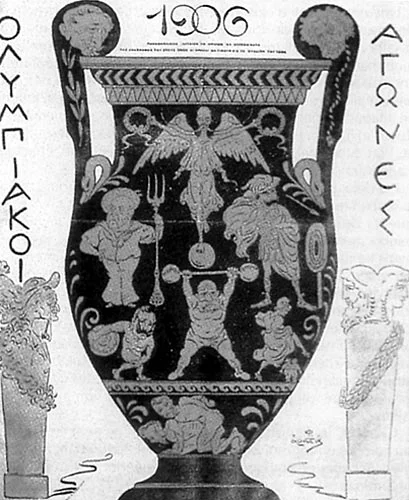
The 1906 Intercalated Games officially opened in Athens, Greece, attempting to establish a permanent Olympic venue. These intermediate games featured athletes from numerous nations competing in traditional Olympic events.
The games represented an ambitious effort to maintain Olympic traditions between regular Olympics. Though ultimately unsuccessful, they demonstrated growing international enthusiasm for organized athletic competition.
1993 – Stephen Lawrence Murdered in Racist Attack

Eighteen-year-old Stephen Lawrence was murdered in a racially motivated attack while waiting for a bus in Well Hall, Eltham. The brutal killing shocked Britain and exposed deep-rooted racism in society.
The case became a watershed moment in British race relations and criminal justice. Lawrence’s death sparked nationwide discussions about institutional racism and police procedures.
1970 – Chicano Park Created Through Community Occupation
Chicano residents in San Diego occupied a site under the Coronado Bridge, leading to the creation of Chicano Park. This grassroots action represented a powerful assertion of cultural identity and community rights.
The occupation successfully established a space for Chicano cultural expression and political organizing. Chicano Park became a symbol of community activism and cultural preservation.
Religious and Social Events on April 22
1969 – Communist Party of India (Marxist-Leninist) Formed
The formation of the Communist Party of India (Marxist-Leninist) was announced at a mass rally in Calcutta. Thousands of supporters gathered to witness the establishment of this revolutionary political organization.
The party’s formation reflected growing radical political movements across India. This development marked a significant shift in Indian leftist politics and revolutionary ideology.
1992 – Gas Explosions Devastate Guadalajara Streets
A series of catastrophic gas explosions ripped through the streets of Guadalajara, Mexico, killing 206 people. The disaster resulted from gas leaks in the city’s underground infrastructure.
The tragedy highlighted critical infrastructure safety issues in rapidly growing urban areas. Emergency response teams worked desperately to rescue survivors from the devastated neighborhoods.
2020 – Four Police Officers Killed in Melbourne Freeway Incident

Four police officers died after being struck by a truck on Melbourne’s Eastern Freeway while conducting a traffic stop. The incident marked the largest single loss of police lives in Victoria Police history.
The tragedy shocked Australia and highlighted the daily dangers faced by law enforcement officers. The community response demonstrated widespread support for police and their families.
Business and Economic Events on April 22
1966 – American Flyers Airline Flight 280 Crashes

American Flyers Airline Flight 280 crashed during approach to Ardmore Municipal Airport in Oklahoma, killing all 83 people aboard. The disaster represented one of the deadliest aviation accidents in American history.
The crash prompted extensive investigations into aviation safety protocols and procedures. Federal authorities implemented new safety measures to prevent similar tragedies.
1974 – Pan Am Flight 812 Crashes in Bali

Pan Am Flight 812 crashed during approach to Ngurah Rai International Airport in Denpasar, Bali, killing all 107 people on board. The accident shocked the international aviation community.
The tragedy led to significant improvements in approach procedures and airport safety systems. Aviation authorities worldwide reviewed and updated their safety protocols.
1944 – German Weather Station Attacked in Greenland
Allied Sledge Patrol forces attacked the German Bassgeiger weather station in Greenland’s remote Arctic territory. The operation disrupted vital meteorological intelligence gathering for Nazi military operations.
The attack demonstrated the global reach of World War II intelligence operations. Weather data proved crucial for military planning and operations on all fronts.
Transportation and Infrastructure on April 22
1977 – Optical Fiber Technology Revolutionizes Communications
The first successful transmission of live telephone traffic through optical fiber cables marked a revolutionary advance in telecommunications technology. Engineers demonstrated the superior capacity and clarity of fiber optic systems.
This breakthrough laid the foundation for modern internet and telecommunications infrastructure. Optical fiber technology would eventually enable global digital communications networks.
1969 – Solo Circumnavigation Achievement Inspires Maritime Innovation

Sir Robin Knox-Johnston’s completion of the first solo non-stop global circumnavigation showcased advances in maritime technology and navigation. His yacht Suhaili demonstrated the capabilities of modern sailing vessels.
The achievement inspired innovations in yacht design and navigation equipment. Maritime engineers developed new systems for long-distance solo sailing and emergency communications.
1970 – Environmental Movement Transforms Transportation Policy

The first Earth Day celebration brought unprecedented attention to transportation’s environmental impact. Millions of participants demanded cleaner vehicles and improved public transportation systems.
The movement catalyzed development of emission controls and alternative fuel technologies. Environmental concerns became central to transportation planning and policy development.
Sports and Recreation on April 22
1906 – International Athletic Competition Expands
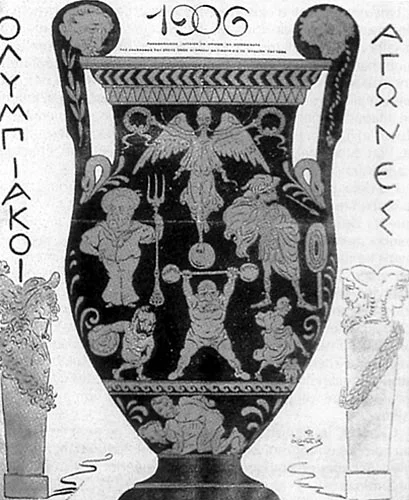
The 1906 Intercalated Games in Athens brought together athletes from multiple nations for international competition. These games featured traditional Olympic events and attracted significant international participation.
The competition demonstrated growing global interest in organized athletic events. International sports organizations began developing standardized rules and competition formats.
1969 – Solo Sailing Achievement Sets New Standards

Sir Robin Knox-Johnston’s victory in the Sunday Times Golden Globe Race established new benchmarks for solo sailing achievement. His 312-day non-stop circumnavigation pushed the limits of human endurance.
The race inspired development of new sailing techniques and equipment. Solo sailing became recognized as one of the most demanding tests of human capability.
1970 – Environmental Awareness Influences Recreation

Earth Day celebrations promoted outdoor recreation and environmental stewardship. Millions of people participated in hiking, camping, and nature activities to connect with the environment.
The movement emphasized recreation’s role in environmental education and conservation. Outdoor activities became vehicles for promoting environmental awareness and protection.
Notable Births on April 22
1904 – J. Robert Oppenheimer Born
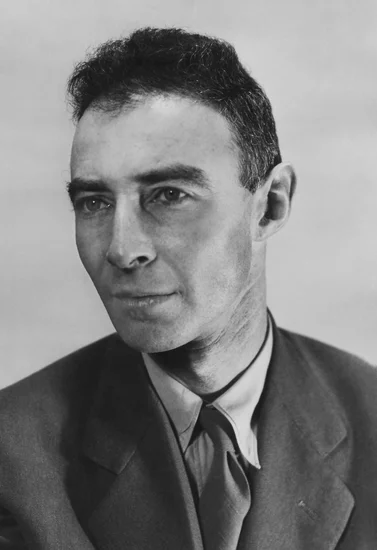
American physicist J. Robert Oppenheimer entered the world, destined to become the scientific director of the Manhattan Project. His childhood showed early signs of intellectual brilliance and scientific curiosity.
Oppenheimer would later lead the development of the atomic bomb during World War II. His complex legacy encompasses both scientific achievement and moral questions about nuclear weapons.
1909 – Rita Levi-Montalcini Born
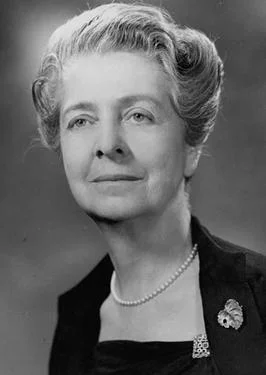
Italian neurologist Rita Levi-Montalcini was born, beginning a life dedicated to groundbreaking scientific research. Her early education occurred despite significant social barriers facing women in science.
She would eventually win the Nobel Prize for her discoveries in neurological development. Levi-Montalcini’s research revolutionized understanding of nerve growth and cellular biology.
1916 – Yehudi Menuhin Born

American-Swiss violinist Yehudi Menuhin was born, destined to become one of the world’s greatest classical musicians. His prodigious talent emerged at an extraordinarily young age.
Menuhin’s performances would captivate audiences worldwide for decades. His musical genius helped popularize classical music and inspired countless young musicians.
1922 – Charles Mingus Born
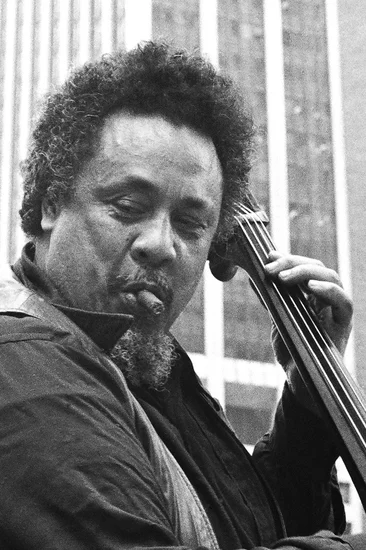
American jazz bassist and composer Charles Mingus was born in Arizona. His childhood immersion in diverse musical traditions shaped his revolutionary approach to jazz composition.
Mingus would become one of jazz’s most innovative and influential figures. His compositions pushed the boundaries of jazz while maintaining deep connections to blues and gospel traditions.
1923 – Aaron Spelling Born
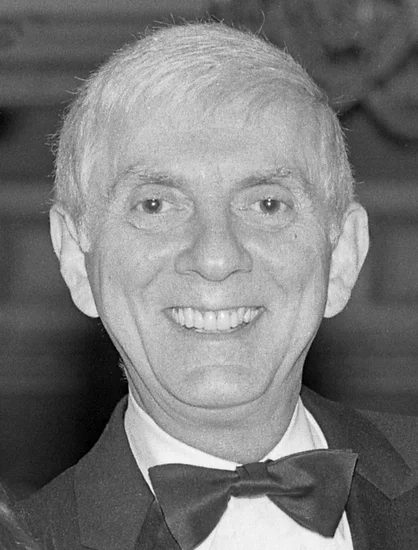
American television producer Aaron Spelling was born, beginning a life that would transform popular entertainment. His early fascination with storytelling and drama shaped his career ambitions.
Spelling would create some of television’s most successful and enduring series. His productions defined popular culture and influenced generations of television creators.
1937 – Jack Nicholson Born

American actor Jack Nicholson was born in New Jersey, destined to become one of cinema’s most iconic performers. His charismatic personality and distinctive style emerged early in his career.
Nicholson would win multiple Academy Awards and define several generations of filmmaking. His performances captured the complexity and rebellious spirit of American culture.
1942 – Giorgio Agamben Born

Italian philosopher Giorgio Agamben was born, beginning a life dedicated to political and philosophical inquiry. His intellectual development occurred during a period of significant social and political change.
Agamben would become one of contemporary philosophy’s most influential thinkers. His work on power, sovereignty, and political life reshaped modern political theory.
1950 – Peter Frampton Born

English musician Peter Frampton was born, destined to become a rock music legend. His early musical education and natural talent set the stage for international stardom.
Frampton’s innovative guitar work and live performances would define 1970s rock music. His album “Frampton Comes Alive!” became one of the best-selling live albums in history.
Notable Deaths on April 22
1908 – Henry Campbell-Bannerman Dies

British Prime Minister Henry Campbell-Bannerman passed away, ending a distinguished career in Liberal politics. His leadership during crucial political reforms left lasting impacts on British governance.
Campbell-Bannerman’s tenure saw significant social and political changes in the United Kingdom. His death marked the end of an era in British Liberal Party leadership.
1933 – Henry Royce Dies

Henry Royce, co-founder of Rolls-Royce Limited, died after revolutionizing automotive and aviation engineering. His perfectionist approach to engineering established new standards for luxury and reliability.
Royce’s innovations in engine design and manufacturing influenced both automotive and aerospace industries. His legacy continues through the Rolls-Royce brand’s reputation for excellence.
1945 – Käthe Kollwitz Dies
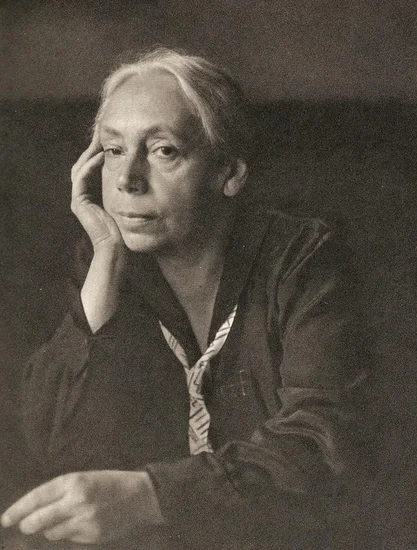
German artist Käthe Kollwitz died, leaving behind a powerful body of work depicting social struggle and human suffering. Her art gave voice to the working class and victims of war.
Kollwitz’s prints and sculptures captured the emotional toll of poverty and conflict. Her artistic legacy influenced generations of socially conscious artists worldwide.
1984 – Ansel Adams Dies
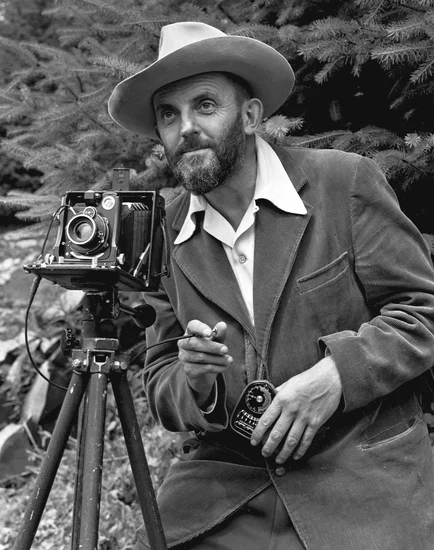
Legendary photographer Ansel Adams passed away, concluding a career that transformed landscape photography into high art. His technical innovations and artistic vision elevated photography’s status among fine arts.
Adams’ black and white photographs of the American West became iconic images of natural beauty. His environmental advocacy helped establish photography as a tool for conservation efforts.
1994 – Richard Nixon Dies

Richard Nixon, 37th President of the United States, died in New York after a complex and controversial political career. His presidency encompassed significant achievements and the Watergate scandal.
Nixon’s death prompted nationwide reflection on his legacy and impact on American politics. His foreign policy achievements were weighed against his domestic political failures.
1996 – Erma Bombeck Dies
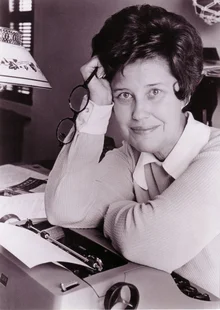
Beloved humorist Erma Bombeck passed away, ending a career that brought laughter to millions of readers. Her columns about suburban family life resonated with American mothers and homemakers.
Bombeck’s wit and wisdom captured the absurdities of everyday domestic life. Her writing style influenced generations of humor writers and social commentators.
Holidays and Observances on April 22
Earth Day International Observance

Earth Day serves as a global celebration of environmental awareness and protection efforts. Millions of people participate in activities designed to promote environmental consciousness and action.
The observance includes tree planting, recycling drives, and educational programs worldwide. Earth Day has become one of the most widely recognized environmental holidays globally.
Holocaust Remembrance Day in Serbia
Serbia observes Holocaust Remembrance Day to honor victims of Nazi persecution and genocide. The day includes memorial services, educational programs, and historical exhibitions.
This solemn observance ensures that the lessons of the Holocaust remain alive for future generations. Serbian communities gather to remember local victims and survivors of Nazi atrocities.
Stephen Lawrence National Day of Commemoration

The United Kingdom observes a national day of commemoration for murdered teenager Stephen Lawrence. This observance promotes racial equality and justice while honoring Lawrence’s memory.
The day includes educational programs about racism and hate crimes. Communities across Britain participate in activities promoting tolerance and understanding.
Discovery Day in Brazil
Brazil celebrates Discovery Day commemorating the arrival of Portuguese explorers in 1500. The observance includes historical exhibitions, cultural performances, and educational programs.
This national holiday reflects on Brazil’s colonial history and cultural development. Brazilian communities celebrate their diverse heritage while acknowledging historical complexities.
